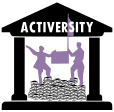How can you make a Neighborhood cooler? What’s ‘cool’ anyway? We believe: when neighbors can support each other. This can only happen, when neighbors know each other. What can you do? The following things have worked in this neighborhood, and here is how you can do it, too!
Kitchen for Everyone – Küfa/VoKü
One group of people cooks for the neighborhood, one meal for all. Usually up to ~40 people show up. People pay a donation for their share, usually 2-3 € (as of 2010-2022). The food is either dumpster-dived or bought. The meal is vegan (or sometimes freegan), such that nobody is excluded. The donations usually pay for the costs, even if the ingredents have to be bought. A regular date per week that people can remember helps install the event as a neighborhood bonding event. Flyers are made. In cities that host many such events, the many different locations are listed online in local wikis. It’s best to take turns, but some alternative projects do this regularly themselves, each week. The event is usually a dinner, but we’ve also hosted them as Saturday or Sunday brunch. The latter can also be a BYO version. In the summer, this kind of event can happen outdoors, for example in anybody’s private courtyard or garden. The food can be made in advance. People can be asked to bring their own dishes and cuttlery, but many projects set out bins with soapy and rinse water, such that people wash up their own plates. Before corona, this was 😉
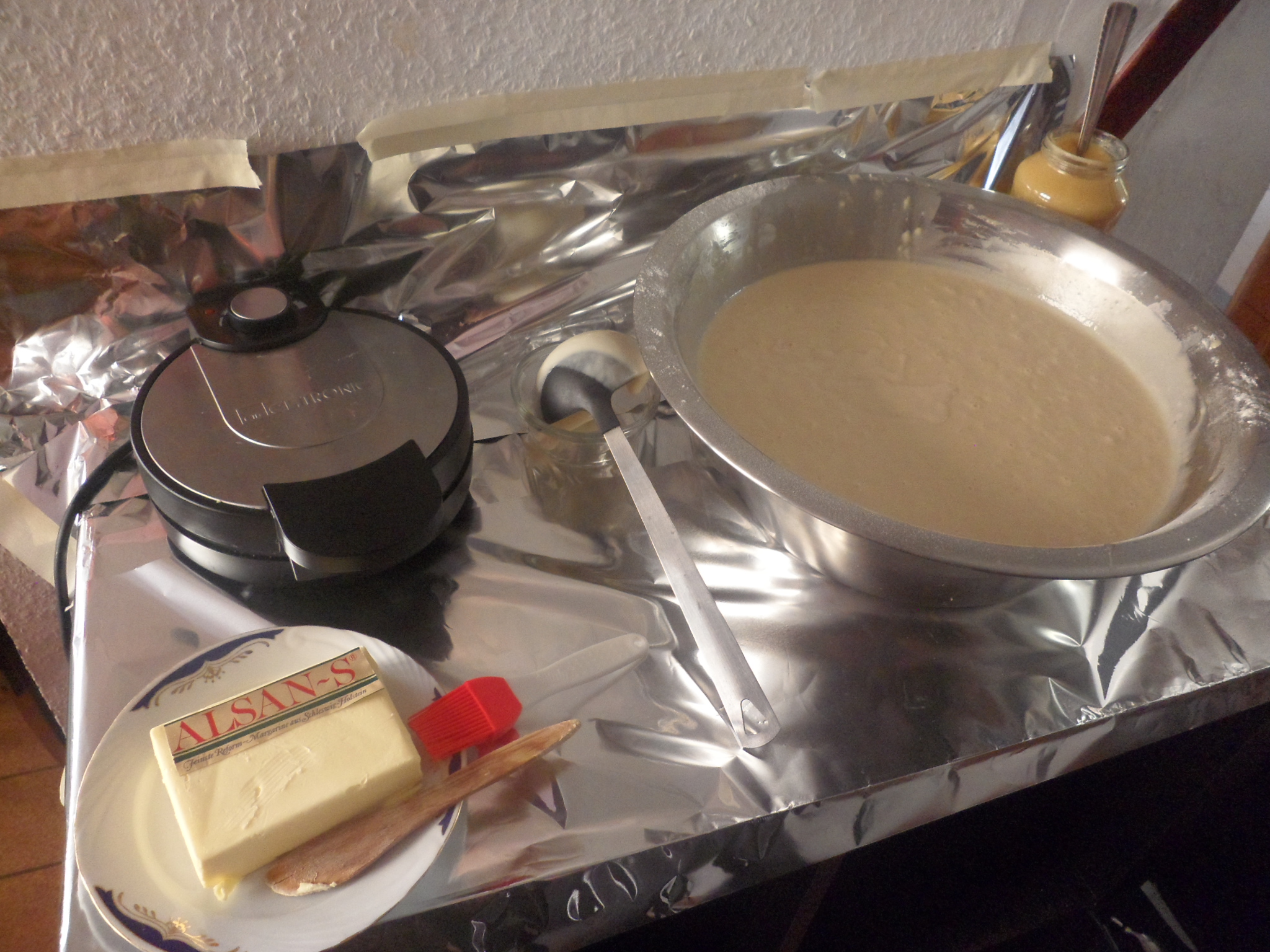
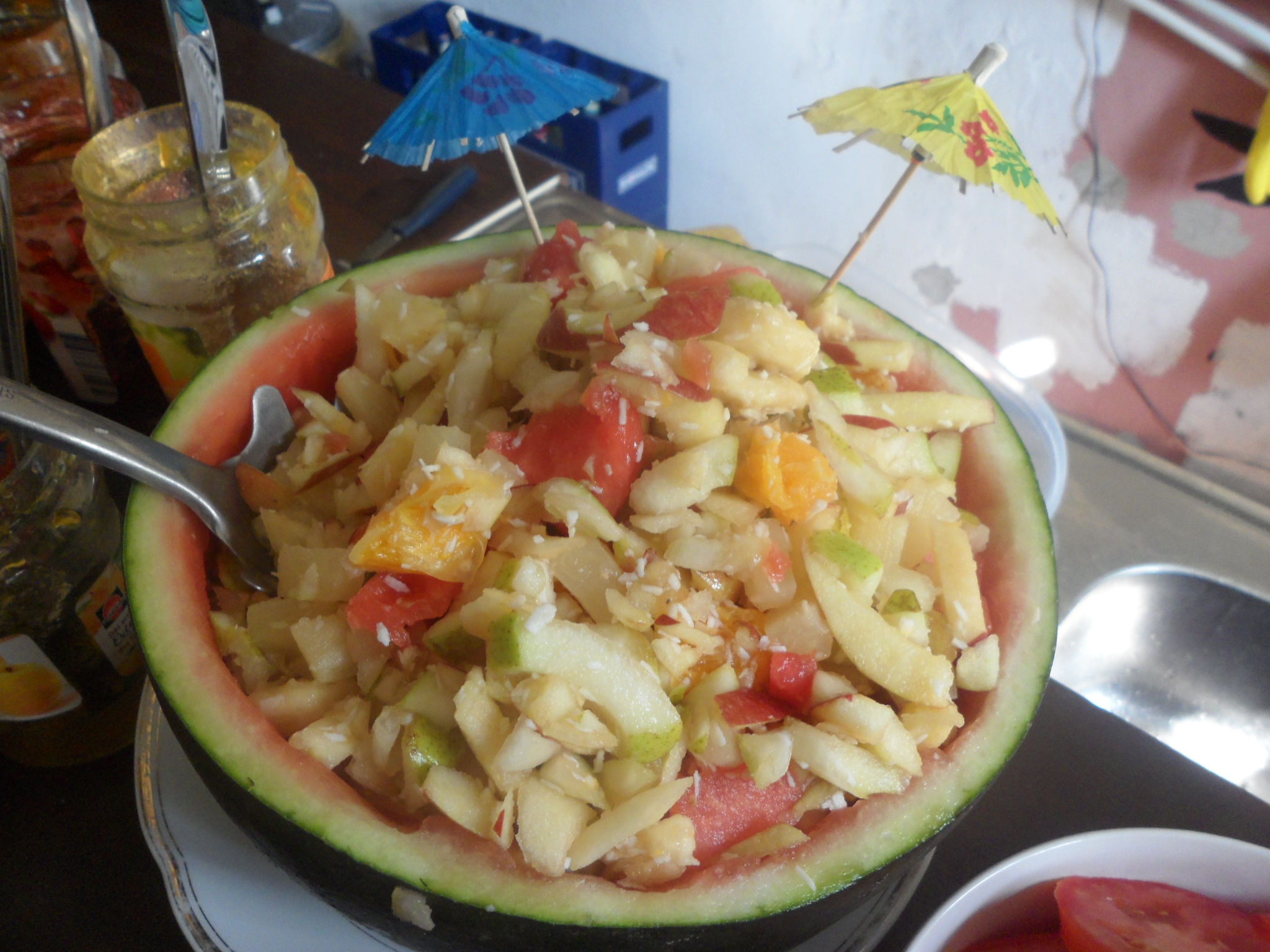
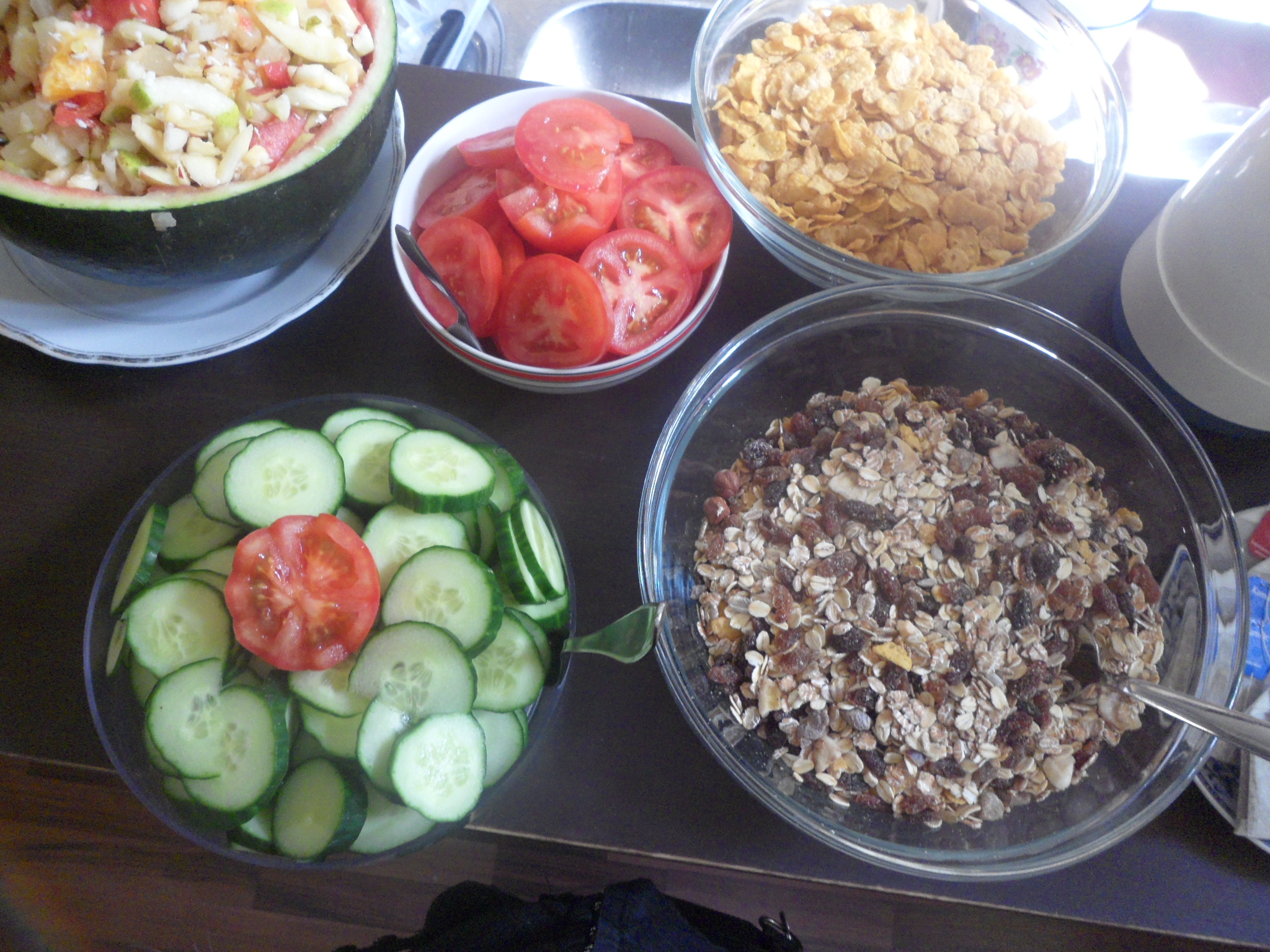
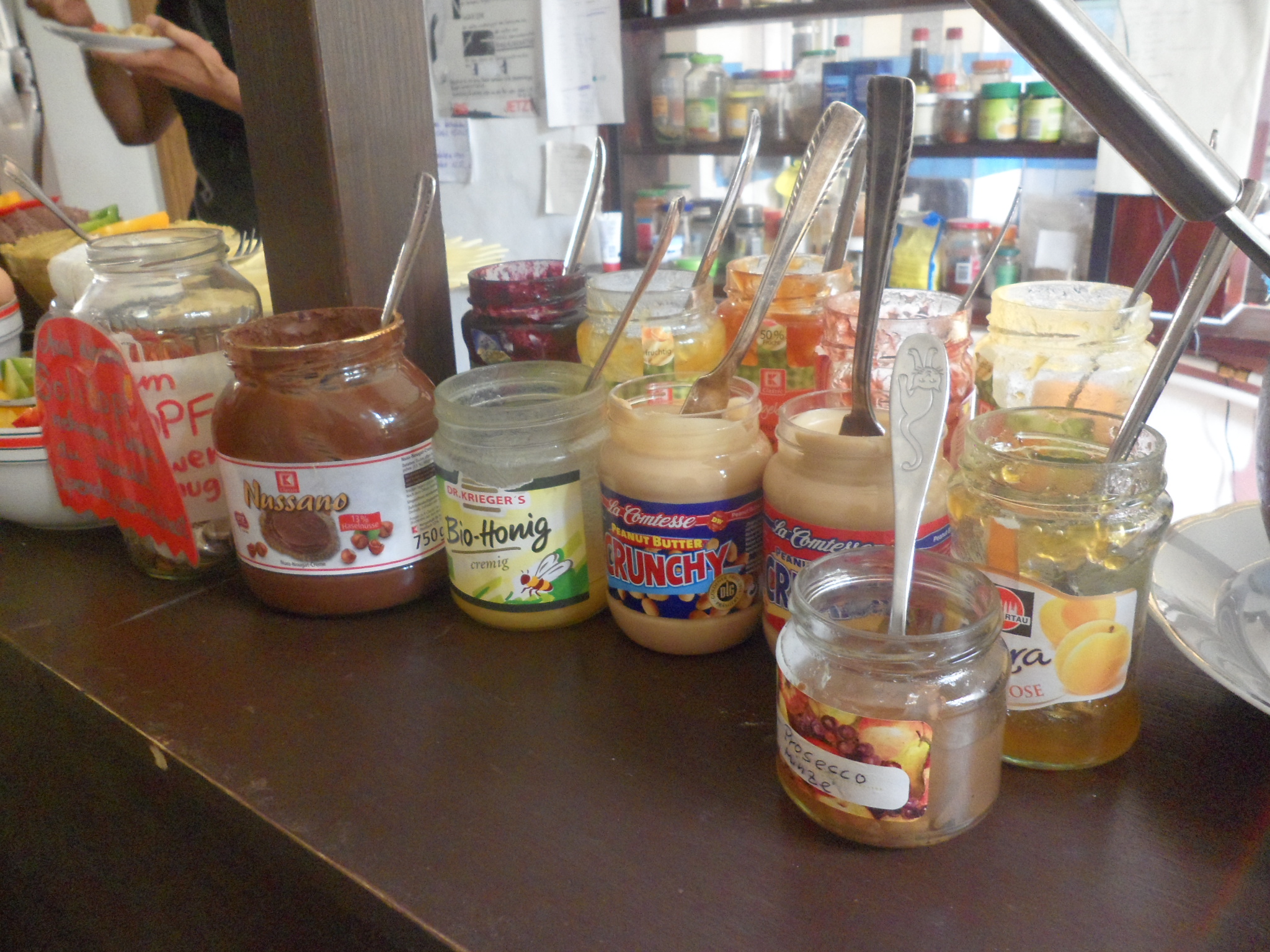
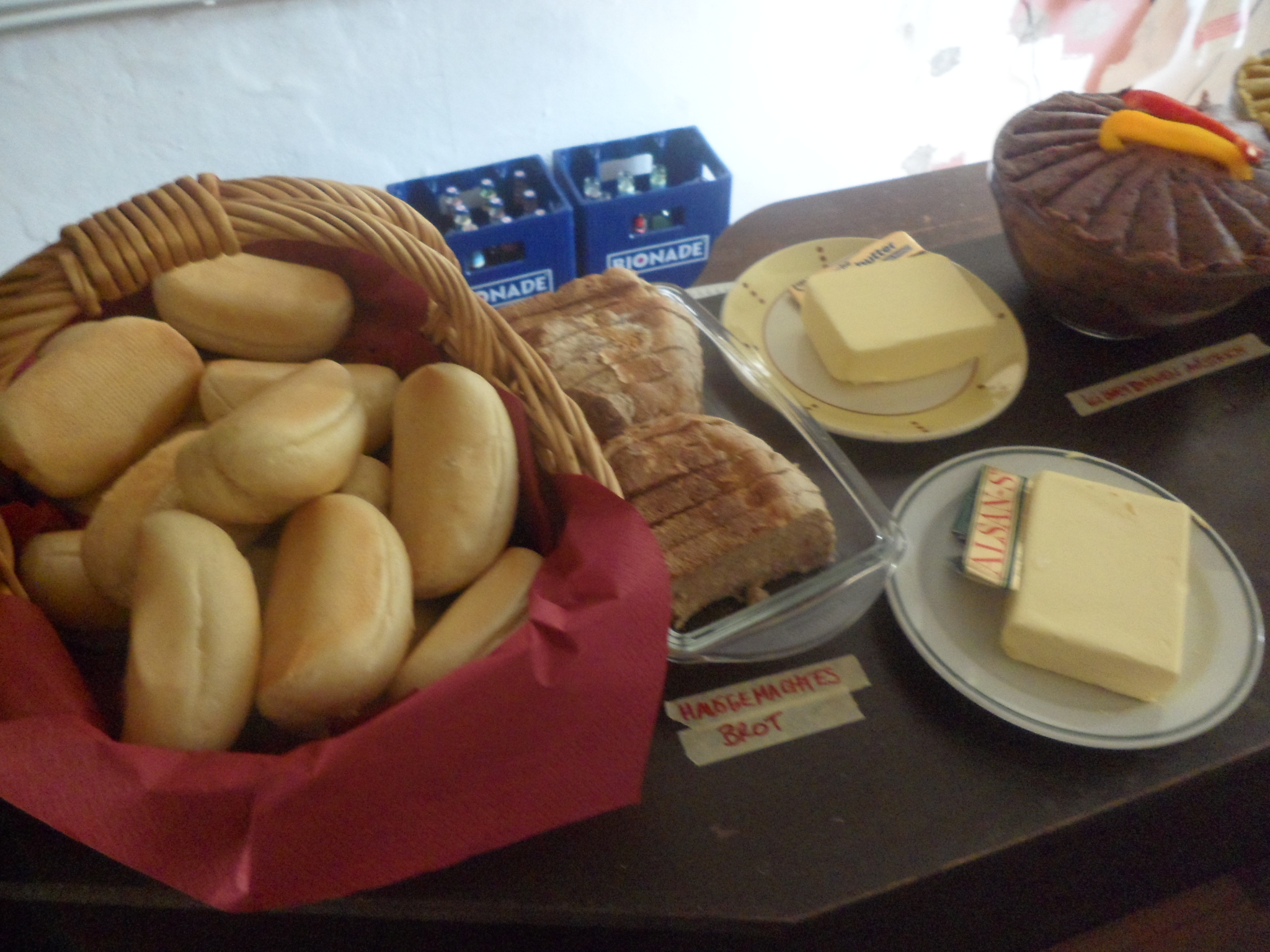
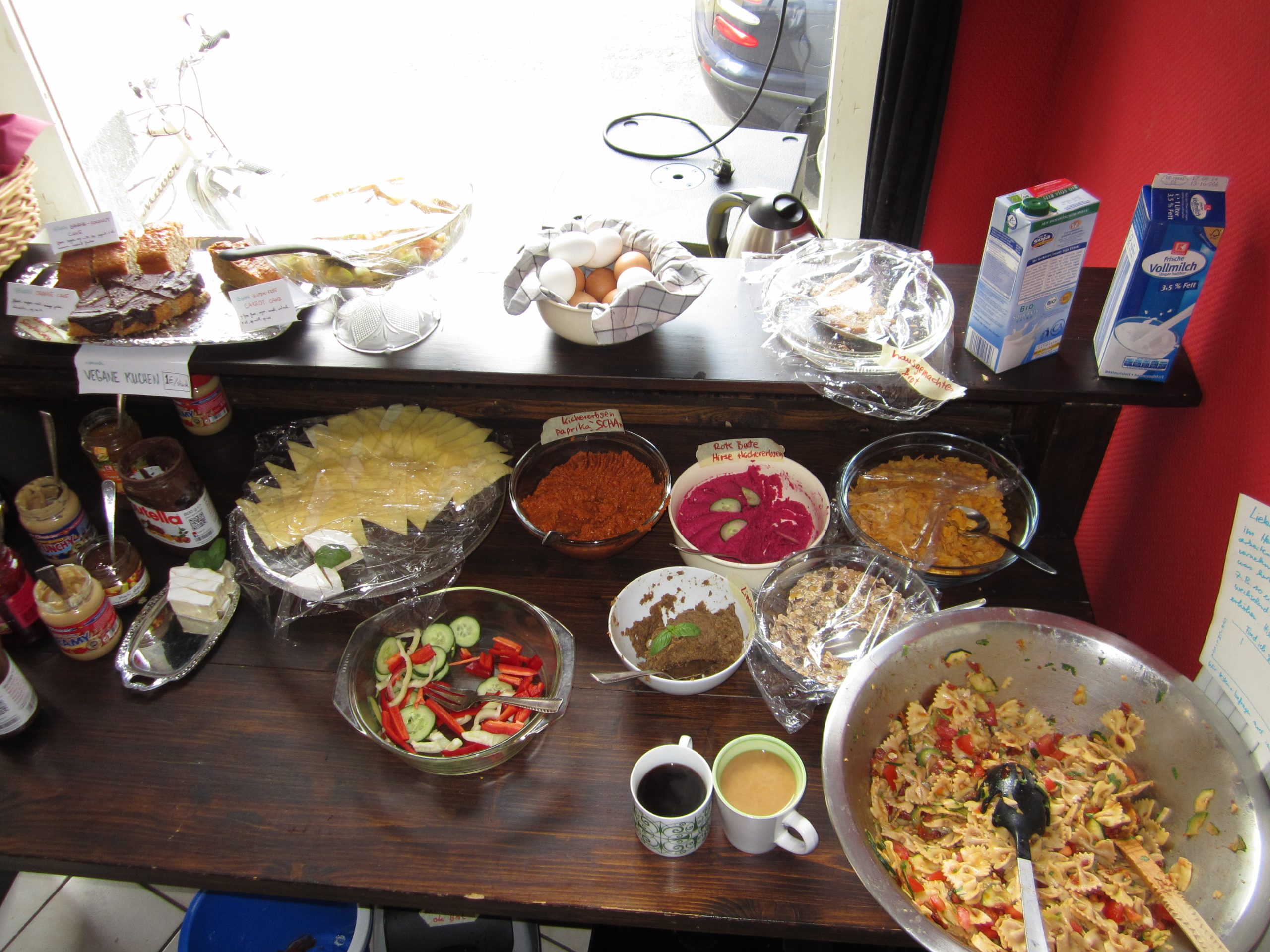
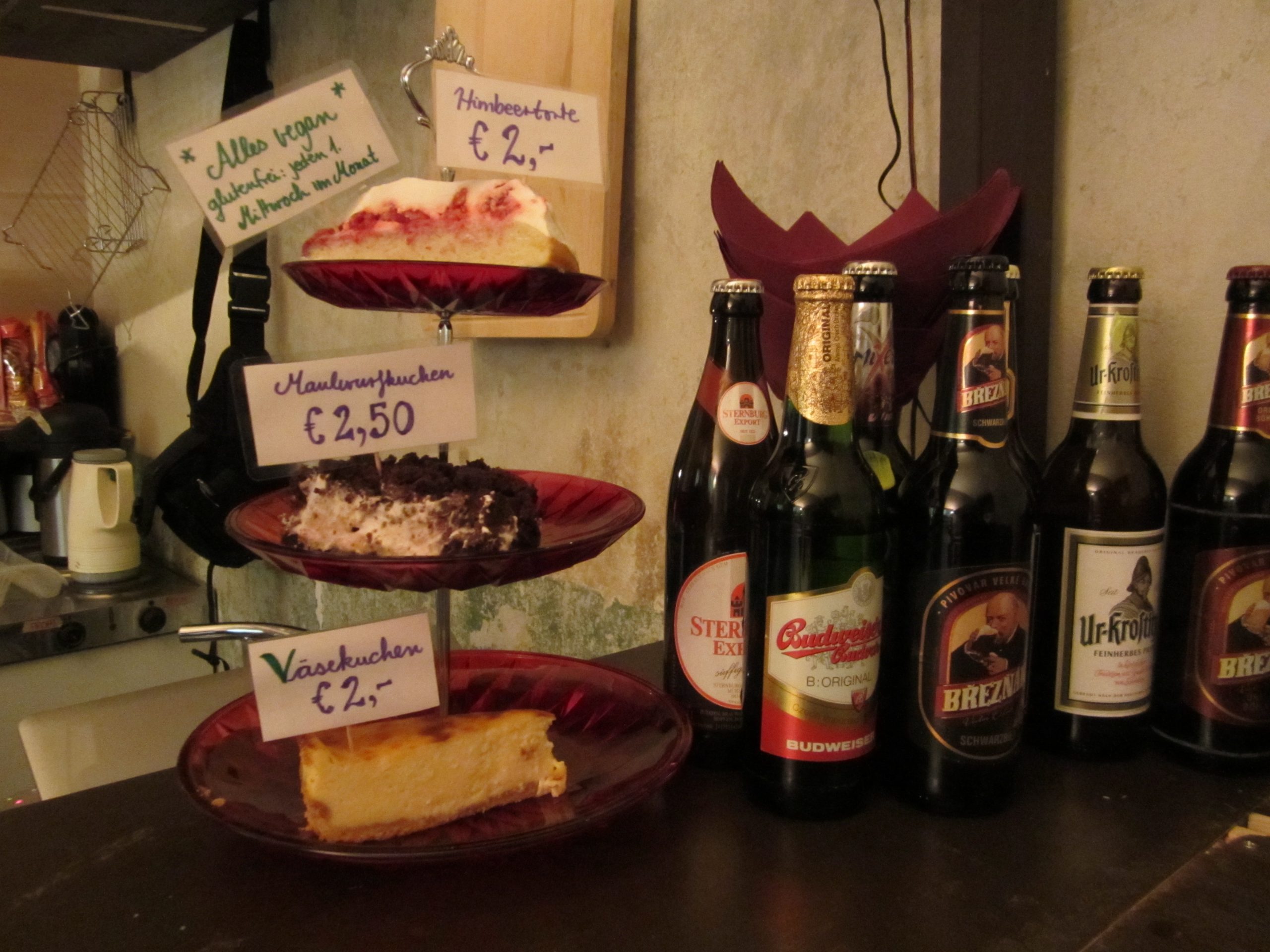
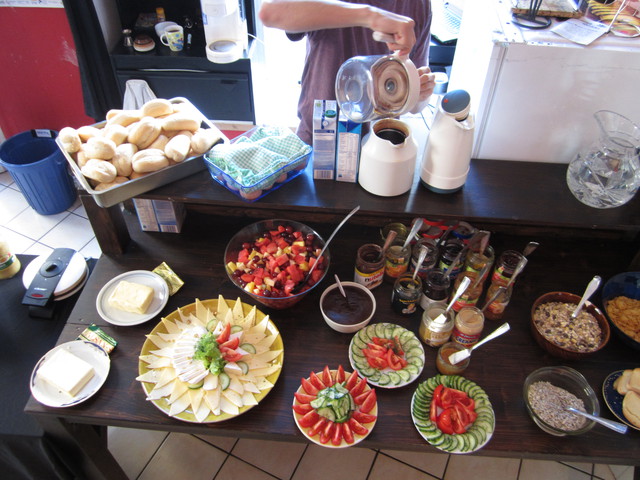
Neighborhood Solidarity (and fire)
In Germany, a rally or standing demonstration needs to be registered. We didn’t march, nor did we choose an street with more possible attention than our direct neighborhood. Our political message was this: We’re pro neighborhood solidarity, and this is only possible if people know each other. We registered a bonfire, which the registration officer didn’t particularly like. We argued that a fire is symbolic for tribes – fire was essential in the evolution of Homo Sapiens, and the meeting point. It attracts humans for practical and social reasons – we argue: it’s crucial for neighborhood bonding to offer a bonfire, a symbolic reminder of what it means to be human. The bonfire was accepted.
Another key feature of the event were stations for kids. The registration officer also didn’t like that. He argued that with the bonfire, the concert and the kids’s stations, it rather sounded like a little festival. No, we argued: In order for parents to be able to participate in democracy, it is crucial that they are able to take their kids along to a political demonstration. It is also critical for democratic education of their kids, to witness their parents participate in democracy, as well as start to participate themselves.
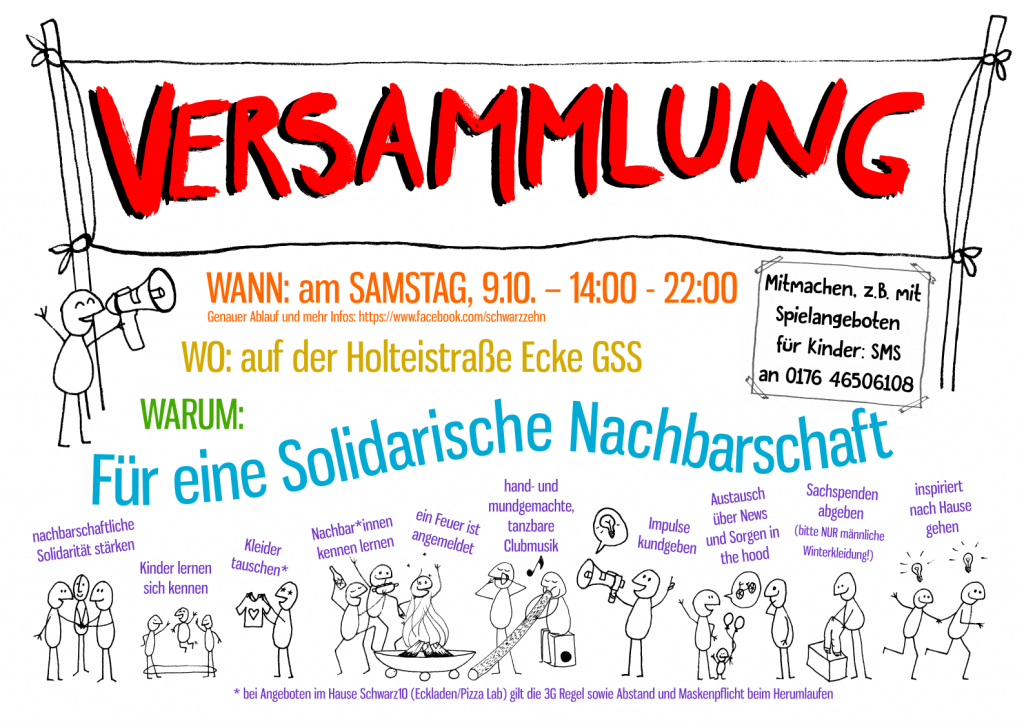
We organized a neighboorhood get-to-know-each-other game, in which neighbors had to find other neighbors to answer questions in a questionnaire. The goal: If you’ve talked to someone in your street once, you’re more likely to say hello next time you see them. If you see each other regularly, you’re more likely to talk again – and maybe ask for help. In fact, many neighbors helped us set up the event in our street: Some gave us electricity for our mini bouncy castle, others helped at the kid’s stations, other lent us materials.
At the kids’ stations, the kids were invited to draw their own banners. After that, we showed them how adults ‘fight for their rights’: by stamping their feet, shouting what they want, and showing their banners.
But you, you are going to be smarter, when you grow up. Because if you just stamp your feet, other people get to make the decissions. What you are going to do, is go to school and educate yourselves. You will be able to make your own decisions, and to act yourself!
That’s what we told them
During the event, we gave five speaches:
PR Responsibility – if alternative projects reject Social Media, we’re out of the picture. The only narrative out there is the mainstream narrative.
Weirdest Faustian Bargain – we’ve made a very weird trade for our modern comforts…
Alternative Culture Attrition – why are there so few older people in alternative projects?
Facebook Crisis – what the Facebook Crisis reveals
Mastodon Social Media Network – it’s time to move to non-commercial, decentralized social media networks
Clothes Swap
People can bring clothes they don’t want to use anymore, but which are clean and still usable. You can leave stuff, you can take stuff. What happens in our hyper-consumerist society is that in the end, we have a heap of clothes. Whether we donate or keep them, we always end up with more every time. All the more important is this very popular event: We need ways to re-use instead of buying more and more stuff.

Open Box Day
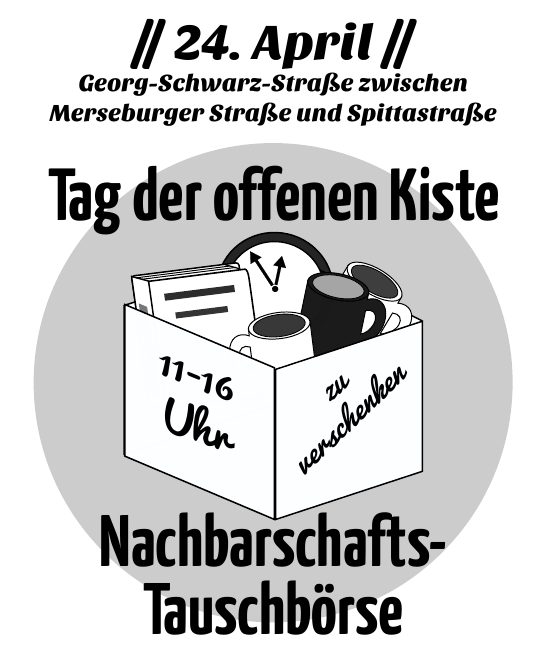
Randomly, people in our city already set out give-away boxes in front of their house every once in a while. But we thought: if we organized and did it all on the same day, then people could go for a walk on our street and choose things from different places. So with flyers, we invited neighbors to, on a specific date, set out open boxes with things that are still usuable, too good to throw away and that they are willing to gift to neighbors. And so it happened! Lots of people showed up, and lots of boxes where seen on the street. If you copy this: Don’t forget to invite people to also remove the left overs after the day is over. Everyone wants a generous neighborhood, but nobody a trashed one!
